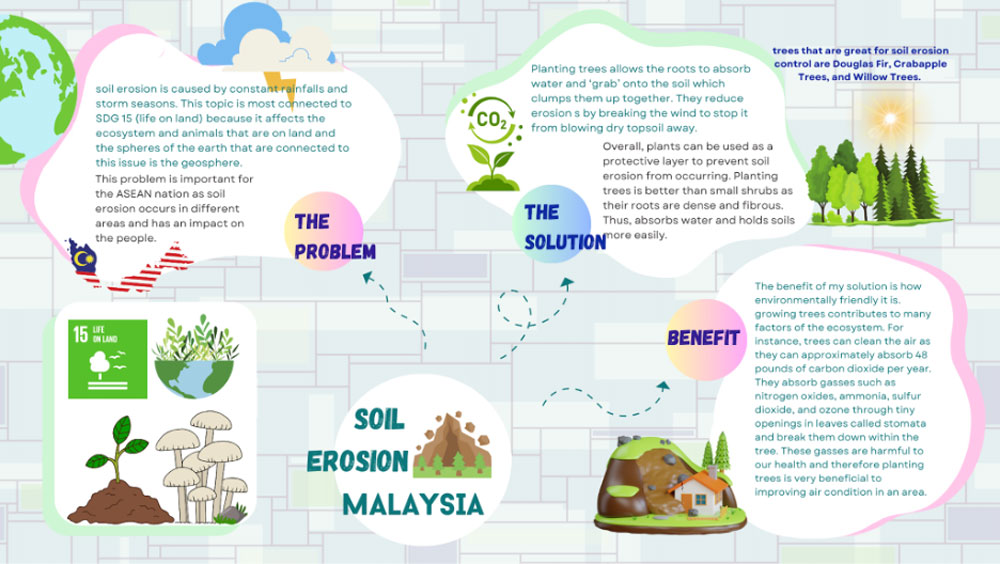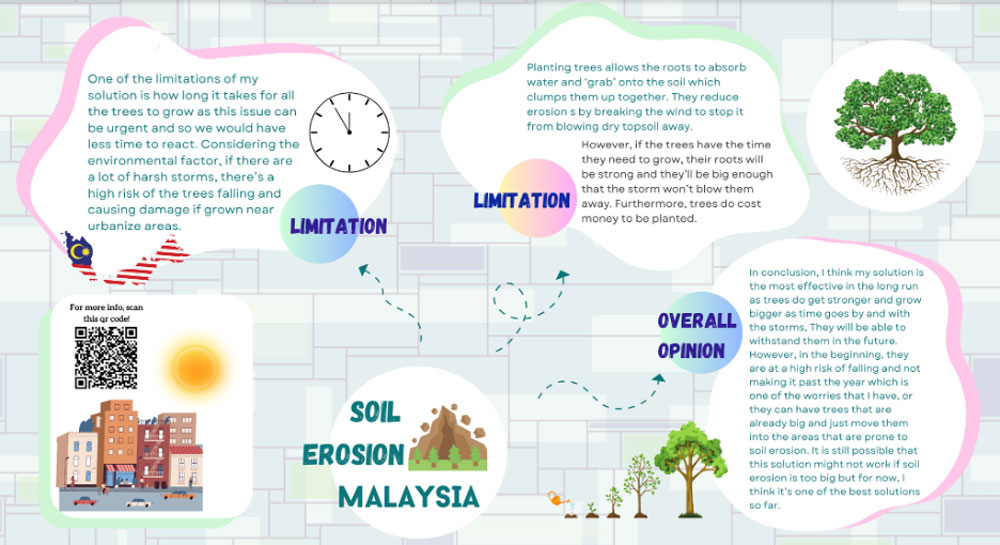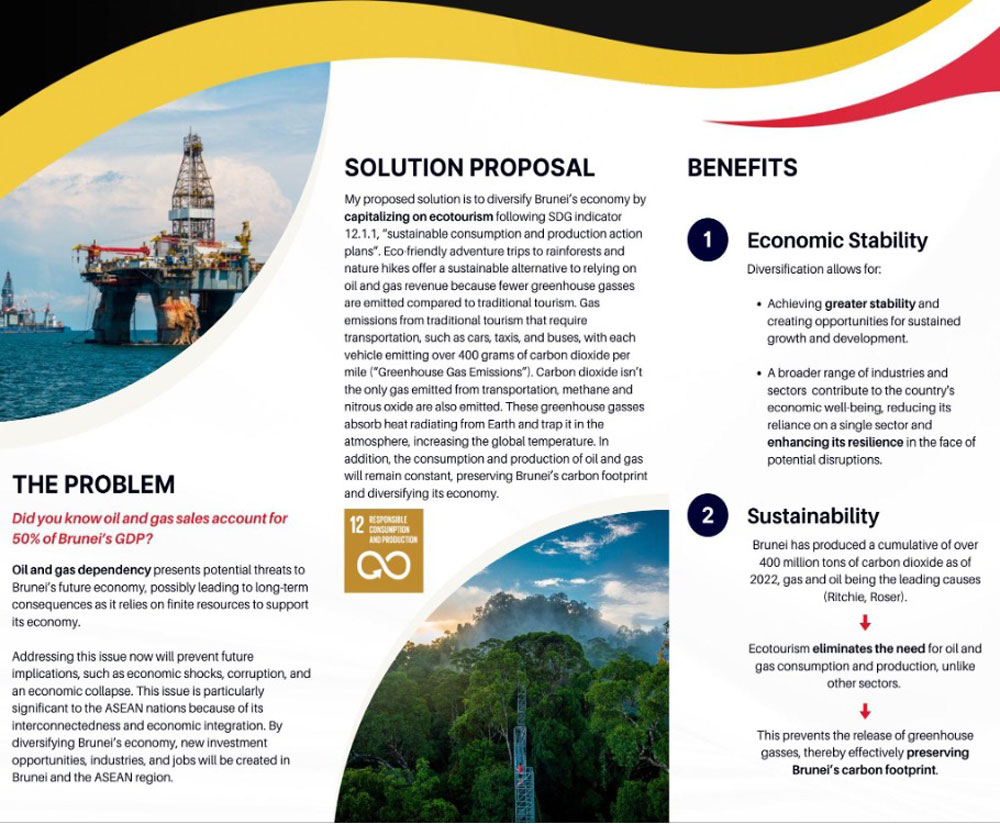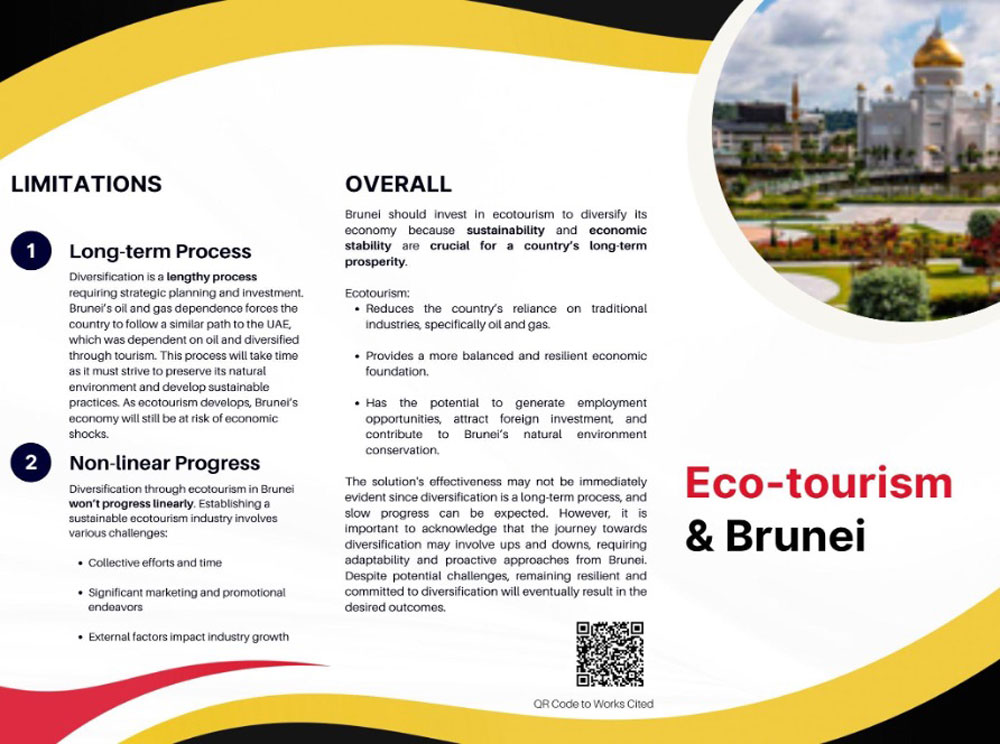
Seeds of Change poster. (Photo source: Nickie Hansen on Canva).
--------------------------------------------------------------
Interdisciplinary learning has long been regarded as an important component of a successful International Baccalaureate (IB) program. According to the IBO, “the benefits of interdisciplinary learning include enabling student-led learning transfer and creating meaningful connections between content areas. There are also clear links between interdisciplinary learning and key skills and competencies such as critical thinking and synthesis.” However, providing students with the structure, time, and opportunities to engage in interdisciplinary learning is often difficult. As students get older and subject-specific curriculum demands increase, opportunities for cross-discipline collaboration decline.
As science and Individuals & Societies (I&S) teachers, we thought our subjects would work well for an interdisciplinary unit (IDU) related to Service as Action as they both focus on developing students’ research skills, along with an understanding of the key concepts of change, sustainability, and environment. As Megan wrote in Make Every Day Earth Day: Leveraging Curriculum for a Sustainable Future about the importance of eco-literacy, “we need to go beyond a superficial, contributionist approach and embed climate education into the fabric of our curriculums.” For this unit, we wanted to give our grade 10 Middle Years Program (MYP) students a chance to look deeply at the United Nations (UN) Sustainable Development Goals (SDGs) through both a scientific and a human lens. Our IDU was called “Seeds of Change'.' Our statement of inquiry was “Society needs to change if we are to aim for a sustainable future.” You can see the unit overview and task sheet that we gave to students here.
The Seeds of Change IDU on sustainability and climate change was also important as it ties in with research done on eco-anxiety by the UPP Foundation: Climate Change and Student Mental Health Report (Jenny Smith et.al 2023). The report found that 71 percent of students were quite or very concerned about climate change and 68 percent were quite or very concerned about the impact of climate change on them personally. The report demonstrated that the majority of the students believed that climate change negatively impacted their mental health. Two of the recommendations noted in the report were:
We felt that this IDU matched well with these recommendations as students researched environmental problems in their assigned countries as well as solutions.
Teaching the Unit and IDU Key Features:


Sample student product: infographic on soil erosion in Malaysia. The QR code has a link to the student’s Noodle Tools citations.


Sample student product: brochure on eco-tourism in Brunei. The QR code has a link to the student’s Noodle Tool citations.
Gathering Pre IDU Student Data:
The overarching question we wanted to investigate by working together on this IDU was: “How successful is combining subjects in an IDU in strengthening learning?” We were also curious about student perceptions of, and familiarity with, IDUs. We wanted to know if the IDU would promote deeper student learning.
To gather background information before starting the unit, we administered a survey to the students. We were interested to hear their thoughts on interdisciplinary learning. Approximately 50 percent of students were positive about the possibility of being successful in the IDU even though many initial responses indicated a lack of familiarity with the IDU format. Around 25 percent of the students were negative regarding their possible learning experience. Twenty five percent of the students were unsure whether they would be successful or not.
One student said, “I haven't really experienced combined learning, and even if I did I can't remember how it went, nor how it impacted my learning.”
Another said, “I cannot think of specific examples when these two subjects have been combined.”
Responses also included statements like, “This type of task is very new to me.” and “It makes me confused when subjects are combined.”
Gathering Post IDU Student Reflections:
Students were re-surveyed with the same form after - were the reflections deeper? Yes. Seventy-five percent of students thought they had a positive learning experience in the IDU. The data showed an increase in understanding of the topic with a shift of +0.4 on the 1-5 Likert scale. Twenty percent of the students were negative with their experience in the IDU.
Positive Comments:
“I think the combination of subjects makes me more successful as it allows me to see the relevance of one topic in many domains. I just really like to see connections and be able to learn about the interconnectedness/complexity of things, so I think that it generally allows me to be more successful.”
“I really love discussion and debating with peers. I do get nervous of course, but once the adrenaline flows, I find myself absorbing knowledge much better while sharing that of my own.”
“When these two subjects are combined, it helped a lot because it shows the connected the two subject have on one issue and make it very easy to understand the issue, the effect it have on the people, and how it happened through I&S and science.”
Negative Comments:
“I have a hard time focusing on two topics at once and sometimes there isn't much correlation between the two subjects. For example in this project it was mainly INS focused and I actually had a pretty hard time to connect it to the science aspect”
“In combination, these two form a pretty large investigation and consumption of information. Generally, I prefer to tackle these subjects separately, as it ensures that I do not confuse issues and make biased assumptions and conclusions.”
“It's hard to focus on both aspects of the task.”
“I believe it's more difficult to learn when subjects are combined because the classes don't connect with one another, which makes it hard to follow. However, I was able to manage throughout the IDU between the two subjects.”
Conclusion:
With Laos’s opportunity to host the ASEAN summit in the last quarter of 2024, we felt that the IDU offered an ideal opportunity to complete some MYP assessments in the two subjects that we teach. The IDU also combined the relevance of the research and study in the part of the world in which the students live with firsthand experience of the problems and their potential solutions.
Post IDU, around 75 percent of students reported that the IDU helped with their learning but 25percent of the students still remained negative about the task. Students self-reported an increase in familiarity with the topic, issues and solutions. We were happy with this data, but as teachers we think next time we should try and identify in advance from the pre-survey the roughly one in four students who commented on their struggle to link the two subjects together, and who said that they may not be successful in the IDU. If we could address this belief earlier through growth mindset thinking, that might lead to more students feeling successful on the task.
As teachers, we learned a lot about the IDU process and will take some of our understanding and apply it to the next time, hopefully alleviating some of the negative comments regarding the process.
Some questions that emerged for us as teachers were:
The IDU also offered an opportunity for parent feedback. One parent said, “How do we find the balance between preparing them (the students) for being changemakers in the future and overwhelming them with the depressing amount of problems that we face globally.” The parent went on to say, “The students should be very proud of their work and I hope that they go on to be the change that we need in this world.”
References
https://www.ibo.org/programmes/middle-years programme/curriculum/interdisciplinary/
https://upp-foundation.org/students-say-climate-change-impacts-their-mental-wellbeing/
--------------------------------------------------------------
Megan Vosk teaches MYP Individuals and Societies at Vientiane International School. She is the Chair of Association for Middle Level Education’s Teacher Leaders Committee.
X: Megan Vosk
John Milton teaches MYP Individuals and Societies at Vientiane International School.
Paul Browne teaches MYP science at Vientiane International School.
Nickie Hansen teaches MYP science at Vientiane International School.
Vientiane International School Website: https://www.vislao.com/#